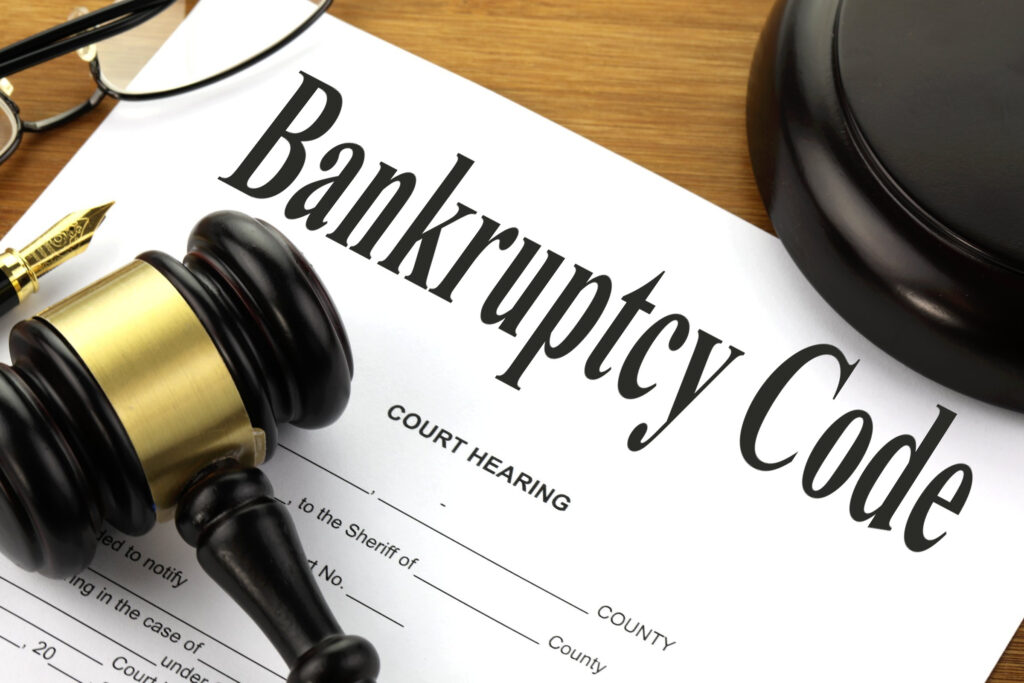For many, “bankruptcy” is a synonym for “zeroing.” It seems like after you file, everything you own, down to your underwear (if not organs) will be evaluated and auctioned. In fact, a person filing for bankruptcy has some minimum volume of property that cannot be taken away, regardless of your debts. Before you contact Debtstoppers for help in your particular case, there are some things you need to know.
What Bankruptcy Code Says

The Bankruptcy Code explicitly says that if you choose to file under Chapter 7 and sell your property to pay your debts there are still pieces you can keep. These include your house, your workspace, your car, furniture, utensils, clothes, and even some funds. Still, the number of exempt assets and other details differ from state to state, making the matter sophisticated.
By the way, if you decide to swiftly move to another state and only then file for bankruptcy, this probably won’t do the trick. According to BAPCPA, if there is any collision, then the jurisdiction is defined according to where you have spent most of the 180 days before two years before filing – quite a long time! So you better make no sudden moves, but take a deep breath and calculate.
Property You Can Keep

Norms are sophisticated when it comes to real estate. Federal and state exemption laws coexist, and while some states let you choose whether you want to file under state or federal exemption law, most don’t offer such an option. So, you need to check whether your state allows the choice and then make it. In most situations, though, state regulations are better because the equity you can protect under federal law is up to $25,150 (or $23,675 if you have filed before March 31, 2019). State exemption rate may be higher than that.
There are even more nuances if you have added some value to your property within the last 1,215 days before filing. Added value exceeding $125,000 can’t be exempted, so flipping will not grant the safety of your investments above this level. Property evaluation is probably the trickiest thing in the entire business.
Finally, if your property is mortgaged, it’s the equity you can protect, not its entire price. Under Chapter 13, though, you can opt for restructuring your debts and developing a new plan with your lender if you have a stable income or a perspective of it. Under Chapter 7, chances are you cannot keep them home. For families, there are some tricks: if a married couple files a joint bankruptcy, the exempt assets double. Again, this does not mean you have to run around and search for a sham marriage: this probably won’t work either.
Cars
Under the current law, one filing for bankruptcy can keep one motored vehicle (not necessarily a car) if its cost does not exceed a certain limit. The exact limit depends on the state. If you have more than one vehicle, you may have a hard time thinking about which one to keep. The choice can be simpler, though, if you decide on keeping the one that will certainly pass as an exempt one.
It can be a wise choice to sell your car yourself if you find out you cannot keep it after filing. You can earn more money on this than if it was sold by a trustee. If you are still paying for your car, there are various options: you can give it up (though it gives you little), insist on making payments as usual, or reaffirm your loan if you are sure you can pay it in time. Other options may exist, too.
Funds

In general, your funds are non-exempt assets, no matter if it’s cash or bank deposits. Still, there are some exceptions to this rule. They include Social Security, unemployment or disability benefits, veteran benefits, and other payments. Still, if you have significant amounts stored in whichever of these accounts, it becomes not so sure. You may have a good consultation to be sure whether you can keep it.
All the money you earn after your bankruptcy is totally exempt. It’s only partially true about what you have earned before filing but received after: this money is not fully covered. Not the reason for any shenanigans, but if you can delay some contract until after the proceedings, there is no law obliging you to sign it before. Again, a consultation can save you more money than it costs.
Other Items

The word of the day is “reasonable.” The law allows you to keep reasonably necessary clothes, furniture, home appliances, other household items and tools, especially those you need for your work. Still, “reasonable” here is the opposite for “luxury.” Designer clothes, jewelry, premium gadgets (unless necessary for work), other excesses can fall out of the protection. So, each doubtful one needs to be discussed with an attorney.
Again, joint filing may let a married couple keep twice as many of these items. But again, it can be seen as an attempt to exempt more assets than necessary, especially if they aren’t found “reasonable.” But (just like with vehicles), you can sell some of this stuff before filing if you consider this more profitable and helpful to pay your debts.
The federal limit for “reasonable” is up to $13,400 in total and up to $625 for a single item. Subjective value is not considered at all, so your heirlooms, memorabilia, and trophies are viewed like any other items. Again, your state bankruptcy regulations may set higher limits, which is a reason to consider everything more carefully.
What Can You Save?
Bankruptcy procedure is designed to grant you some quality of life after it. But there are so many complications and nuances in the regulations that you may get lost in them unless you give them more time than a regular person does. While this makes sense (it is you who files and you who faces the consequences), contacting a lawyer can still be the best option. After all, the fewer problems you have with your everyday life and work, the sooner you can make a new start.
Got anything to add? Then drop a comment below. We’d like to hear your story of life after bankruptcy or an example of how you minimized your losses legally and easily. If you think your friends may need such an article, share it on Facebook, Twitter, etc.

